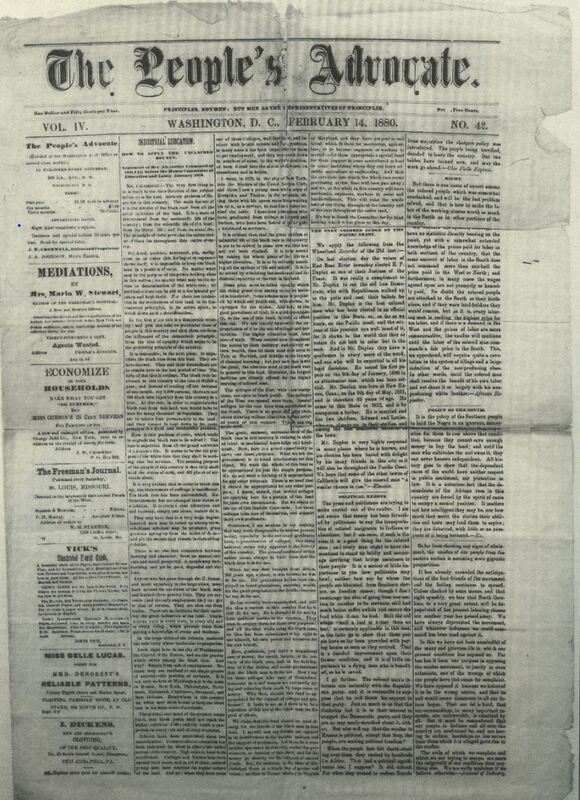What are the implications?
Atta Gould
Finally, the implications of mainstream Virginia newspapers must be examined. Virginia newspapers calling for lynchings, the continued enslavement of black people, and the secession of Virginia from the Union posed communicative and physical threats to Black Americans in the state. This act of violence called for black intervention. African American newspapers counteracted the violence of these newspapers. African American newspapers such as “ The Virginia Star” first published in 1877, acted as a political counter to the narratives of anti-black newspapers.[1] This newspaper was unafraid to call out the unfair treatment of black people in the state, as well as demand equitable action from the government. In the pictures below, the 1882 publishing details the frustration Black Americans in the state felt with the improper educational infrastructure they have been subjected to. The paper goes on to detail the steps that must be taken, such as providing students with educators that have their best intentions at heart.
African American newspapers, however, also uplifted the black community. Many African Americans Newspapers in Virginia focused on informing black locals of local affairs. While it is important for black people’s political voices to be shared and heard, it’s also important for black people to embrace joy and community. Simultaneously these newspapers highlight the positives of black life. Allowing black people to acknowledge the joys around them deconstructs notions that life in America cannot be changed or improved. Today African American Newspapers continue to publish newspapers that inform the local population of the events in the area.
However, there are modern implications of the white news media produced during pre-civil War and post-emancipation Virginia. Virgina News outlets such as CBN News, Hot Air, CNSN News publish Republican media that criminalizes black folk, supports Glen Younkin's attack on black history, and acts as breeding grounds for racialized hysteria. An article published by CNSNNews reports on the grandson of Andrew Lester, the man who shot a teenager, Ralph Yarl, for knocking on the wrong door. The headline wrote, “Grandson suggests Fox News, Trump, ‘Ramped up His Grandfather, Whos Accused of Shooting Wrong-Door Teenager”. The headline suggests that there's a possible double to the actions of Andrew, who did, in fact, shoot Ralph Yarl. It also refers to Ralph as the wrong-door teenager. Which dehumanizes him. Dehumanizing black people in the face of anti-black violence isn’t uncommon. Additionally, the grace given to Andrew is grace that isn’t often given to black people as a whole. Within the past year, there has been a multitude of mass shootings in Virginia. The public is still calling for non-black shooters to be referred to as “thugs” rather than mentally challenged villanelles.
In addition, black Virginians have continued to publish black media to push against the anti-blackness of the media existing today. Black newspapers such as Richmond Free Press Play a critical role in dismantling common narratives created and propagated by popular media outlets. Virginia is also home to the most HBCUs in the country, and many of these institutions produce newspapers, as well as social media accounts, blogs, and general media publications that speak to the experiences of black people. For example, Hampton University hosts a podcast where students divulge topics relating to the black community. One of their most popular episodes speaks on the prison system.
[1] A history and analysis of Negro Newspapers in Virginia. Accessed May 10, 2023. https://scholarship.richmond.edu/cgi/viewcontent.cgi?article=1234&context=masters-theses.
https://storymap.knightlab.com/edit/?id=african-american-newspapers-in-virginia-1860-1930
